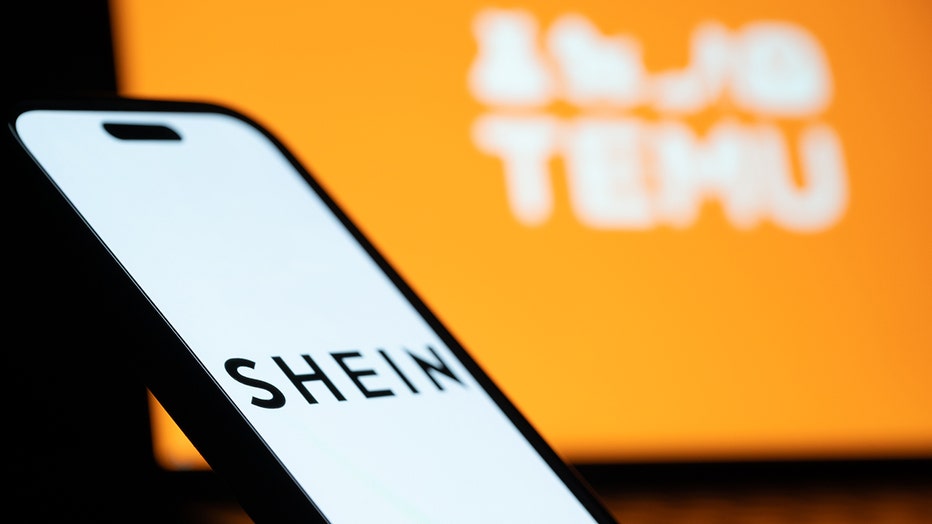Temu and Shein, both founded in China, raising US prices due to tariffs
Trade war with China escalates amid new tarrifs
China announced Friday that it will raise tariffs on U.S. goods from 84% to 125% — the latest salvo in an escalating trade war between the world’s two largest economies that has rattled markets and raised fears of a global slowdown. While U.S. President Donald Trump paused import taxes this week for other countries, he raised tariffs on China and they now total 145%. China has denounced the policy as "economic bullying" and promised countermeasures. The new tariffs began Saturday. LiveNOW from FOX host Stephanie Coueignoux spoke to Sandra Swirski, economy expert on the latest.
Temu and Shein, both China-founded online companies, plan to raise prices for U.S. customers starting next week amid President Donald Trump’s tariff on goods shipped from China.
China currently faces 145% taxes on exports to the U.S., while the Trump administration gave dozens of other countries a 90-day reprieve for most duties. Beijing has hit back at the U.S. with 125% tariffs on American exports.
Here’s what to know:
Shein, Temu raising US prices due to tariffs
What we know:
Temu, which is owned by the Chinese e-commerce company PDD Holdings, and Shein, which is now based in Singapore, said in separate but nearly identical notices that their operating expenses have gone up "due to recent changes in global trade rules and tariffs."
Both companies said they would be making "price adjustments" starting April 25, 2025.
RELATED: China halts Boeing jet orders after Trump slaps 145% tariffs on goods
What we don't know:
It remained unclear how much either company will raise U.S. prices. It was also unclear why the two rivals posted almost identical statements on their shopping sites.
The backstory:
Both Shein and Temu have given Western retailers a run for their money since launching in the U.S. The companies offer a plethora of cheap goods, most shipped directly from merchants in China based on real-time demand. They both also use a flood of digital and influencer advertising.
Dig deeper:
Shein sells inexpensive clothes, cosmetics and accessories, primarily targeting young women through partnerships with social media influencers. Temu, which promotes its goods through online ads, sells a wider array of products, including household items, humorous gifts and small electronics.
Both companies have also faced pushback in the U.S. from lawmakers, a coalition of unnamed brands and organizations, as well as some consumers, who have pointed to the potential environmental harms or alleged labor abuses associated with products that are churned out and shipped worldwide so quickly.
In November, U.S. giant Amazon launched "Amazon Haul," a low-cost online storefront featuring electronics, apparel and other products priced at under $20 – an effort to compete with both Shein and Temu.
What they're saying:
In their customer notices about the pending price increases, both Temu and Shein encouraged customers to keep shopping in the days ahead.
"We've stocked up and stand ready to make sure your orders arrive smoothly during this time," Temu's statement said. "Were doing everything we can to keep prices low and minimize the impact on you."

FILE - In this photo illustration, the Shein and Temu logos are displayed on screens on Feb. 20, 2025, in London, England. (Photo Illustration by Ben Montgomery/Getty Images)
Closing trade loophole that boosted Chinese online retailers
Big picture view:
The 145% tariff Trump slapped on most products made in China, coupled with his decision to end a customs exemption that allows goods worth less than $800 to come into the U.S. duty-free, has dented the business models of the two platforms.
E-commerce companies have been the biggest users of the widely used exemption. Trump signed an executive order this month to eliminate the "de minimis provision" for goods from China and Hong Kong starting May 2, when they will be subject to the 145% import tax.
As many as 4 million low-value parcels — most of them originating in China — arrive in the U.S. every day under the soon-to-be canceled provision. U.S. politicians, law enforcement agencies and business groups lobbied to remove the long-standing exemption, describing it as a trade loophole that gave inexpensive Chinese goods an advantage and served as a portal for illicit drugs and counterfeits to enter the country.
RELATED: Chinese-based Amazon sellers weigh price hikes or exiting US market: report
The Source: This story was reported using statements shared by both Temu and Shein on April 17, 2025. It was reported from Cincinnati, and the Associated Press contributed.

